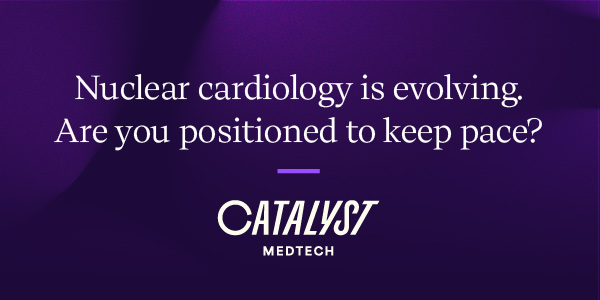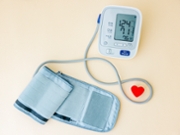|
|
| News for nuclear cardiology and cardiovascular imaging professionals | SIGN UP ⋅ SHARE |
|
|
 
|
Top Stories
ASNC is set to release new guidelines in 2026 on the clinical use of radiotracer protocols for stress testing as well as PET and SPECT. "It's an exciting time for new guidance from ASNC," said ASNC President-elect Dr. Jamieson M. Bourque. He also announced ASNC is now accepting applications for new research funding opportunities totaling $125,000. In addition, the Society is promoting collaborations that will to inform forthcoming guidelines and broaden nuclear imaging applications. |
|
|

|
|
Catalyst delivers immediate access to advanced cardiology imaging systems. Our ready-to-deploy OEM Digirad portfolio is built for where the field is headed.
|
|
|
|
|
|
 
|
Medical Focus
|
Older women who walk 4,000 steps just one or two days a week can significantly reduce their risk of cardiovascular disease and mortality, according to a study in The British Journal of Sports Medicine. The study, which analyzed data from more than 13,000 women with a mean age of 72, points to the importance of total step volume over daily targets, noting a 27% reduction in cardiovascular disease risk and a 26% decrease in mortality for those reaching the step count.
|
|
|
Two studies published in the journal Neurology Open Access suggested a link between gum disease and increased risk of brain damage and stroke. One study found that gum disease was associated with damage to the brain's white matter, while another linked the presence of both gum disease and cavities with an 86% higher risk of stroke. Maintaining oral health was associated with an 81% reduction in stroke risk.
|
|
| |
 |
| (Mrs/Getty Images) |
A study published in the Journal of the American College of Cardiology found that even small amounts of alcohol can increase blood pressure. The analysis of data from 360,000 annual checkups over 12 years showed that reducing or stopping alcohol consumption was associated with decreases in blood pressure, while starting to drink was tied to increases. |
|
|
 | Unprepared for AI: The Retail Transformation
AI is transforming retail, but most retailers are unprepared. Join EPAM, Stripe, and commercetools on November 12 at 12 PM EST to learn how AI is redefining the shopper journey and why composability is key to responsible adoption. Register now to build an AI-ready commerce foundation. |
|---|
| |
|
|
 
|
From the Journal of Nuclear Cardiology
Two studies in the just-posted Journal of Nuclear Cardiology reveal a “continuum of progress” with SPECT that inspired Marcelo F. Di Carli, MD, MASNC, to pen an Editor’s Page asking a series of provocative What-If questions. What if, he asks, the new tracer introduced in JNC by Yufan Gu, MD, and colleagues could enable SPECT to deliver myocardial blood flow data and detect subtle perfusion abnormalities? What if this innovation plus advances with CZT-SPECT systems could bridge the “performance gap between PET and SPECT without the barriers of cost, access, or cyclotron dependency”? This is an editorial you must READ NOW. |
|
This new Best Practices article is your guide for avoiding adverse effects in the stress lab. Sean R. McMahon, MD, and colleagues synthesized the evidence and expert guidance for pharmacologic and exercise stress testing in patients with chronic kidney disease, pulmonary hypertension, frailty, and other comorbidities. The article covers clinical safety, protocol tailoring, and risk mitigation, plus it features helpful tables compiling serious and minor adverse events across the various types of stress tests. Whether you are a trainee or an experienced clinician, this is an article you’ll want to DOWNLOAD NOW. |
|
|
 | The Future of Retail: What's Coming in 2026
AI personalization and seamless customer experiences defined 2025, but the retail landscape is about to shift again. Join us on November 5th for a fast-paced webinar where industry experts reveal the top trends and technologies shaping 2026. Discover how to stay ahead, boost productivity, and deliver next-level shopping experiences. Register now! |
|---|
| |
|
|
 
|
Free eBooks and Resources
|
  | | | |
